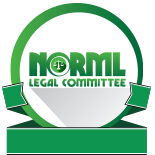Indianapolis Possession of Cocaine or Narcotic Attorney
If you or a loved one have been accused of possession of cocaine or possession of a narcotic drug, you need an experienced attorney fighting for you. You may have many questions the charges, possible defenses, the criminal justice process and what to expect next. Chambers Law Office is here to help.
Possession of Cocaine or Narcotic Substance
Possession of cocaine or narcotic substance are found in Indiana Code Article 48 (I.C. 35-48-4-6). I.C. 35-48-4-6 (a) states that “a person who, without a valid prescription or order of a practitioner acting in the course of the practitioner’s professional practice, knowingly or intentionally possesses cocaine (pure or adulterated) or a narcotic drug (pure or adulterated) classified in schedule I or II, commits possession of cocaine or a narcotic drug, a Level 6 felony.”
However, the offense is a Level 5 felony if the amount of the drug involved is at least five (5) but less than ten (10) grams or the amount of the drug involved is less than five (5) grams and an enhancing circumstance applies.
The offense is a Level 4 felony if the amount of the drug involved is at least ten (10) but less than twenty-eight (28) grams or the amount of the drug involved is at least five (5) but less than ten (10) grams and an enhancing circumstance applies.
Finally, the offense is a Level 3 felony if the amount of the drug involved is at least twenty-eight (28) grams or the amount of the drug involved is at least ten (10) but less than twenty-eight (28) grams and an enhancing circumstance applies.
Possible Sentences and Consequences
As a felony, a conviction for possession of cocaine or possession of a narcotic can be very serious. If you are convicted of a felony drug offense, you may be facing jail, probation, expensive fines, the loss of job opportunities or housing assistance, the inability to obtain financial aid for school or even deportation if you are not a U.S. citizen.
For a Level 6 Felony drug conviction, the possible sentence ranges from six (6) months to 2 1/2 years with an advisory sentence of one (1) year and up to a $10,000 fine. In some circumstances, if a person qualifies, a judge may enter conviction for a Class A misdemeanor, which carries a possible penalty from zero to one (1) in jail.
The possible sentence for a Level 5 Felony drug conviction is anywhere from one (1) to six (6) years with an advisory sentence of three (3) years and up to a $10,000 fine.
For a Level 4 Felony drug conviction, the sentence ranges from two (2) years to twelve (12) years with an advisory sentence of six (6) years and up to a $10,000 fine.
A person convicted of a Level 3 drug conviction faces a possible sentence of three (3) years to sixteen (16) years with an advisory sentence of nine (9) years and up to a $10,000 fine.
Accused of Possession of Cocaine or Narcotic? Now What?
If you have been accused possession of cocaine or narcotic, the first thing your lawyer will do is look for any possible defenses. Was it actually the client who committed the offense? Were the alleged drugs tested properly? Was there actual or constructive possession? Was the client searched and if so was the search valid? Were there any constitutional violations that can be used to contest the search or arrest? These are just some of the issues that should be reviewed to find weak spots in the state’s case to possibly have the charges dismissed or minimize the penalties.
Additionally, if you were arrested or charged for possession of cocaine or narcotic after a traffic stop, there other issues you will want to review with your lawyer. For example, if someone is stopped by police for running a red light, the officer can only stop the person for as long as it takes to complete the traffic stop. They cannot hold someone for longer just to have a drug dog get to the scene. This rule is sometimes violated and can lead to a court suppressing evidence. In other cases, an officer may simply ask for permission to search the car, in which case certain rights must be read to the driver. If the officer does not follow the law, evidence may be suppressed.
Additionally, in Indiana, a police officer must have reasonable suspicion to stop a car and once stopped, the officer must have a legal reason to search the car or the occupants. If a vehicle is stopped or searched in violation of state or federal laws and cocaine or other narcotics are discovered, those items may be suppressed by the court, possibly leading to a dismissal or reduced charges.
Chambers Law Office Can Help. Contact Us Today!
Attorney Julie Chambers focuses the majority of her practice on criminal defense, including drug cases such as possession of cocaine or narcotic. She will take the time to meet with you and your family to make sure you understand the charges against you and all of your possible options, listening to your concerns, understanding your goals, and answering all of your questions throughout the case. If you or a family member have been accused of possession of cocaine in Indianapolis, Marion County, Indiana, or any of the surrounding counties, including Johnson, Hancock, Hamilton, Madison, Boone or Hendricks counties, contact Chambers Law Office to speak with a lawyer about your case.



